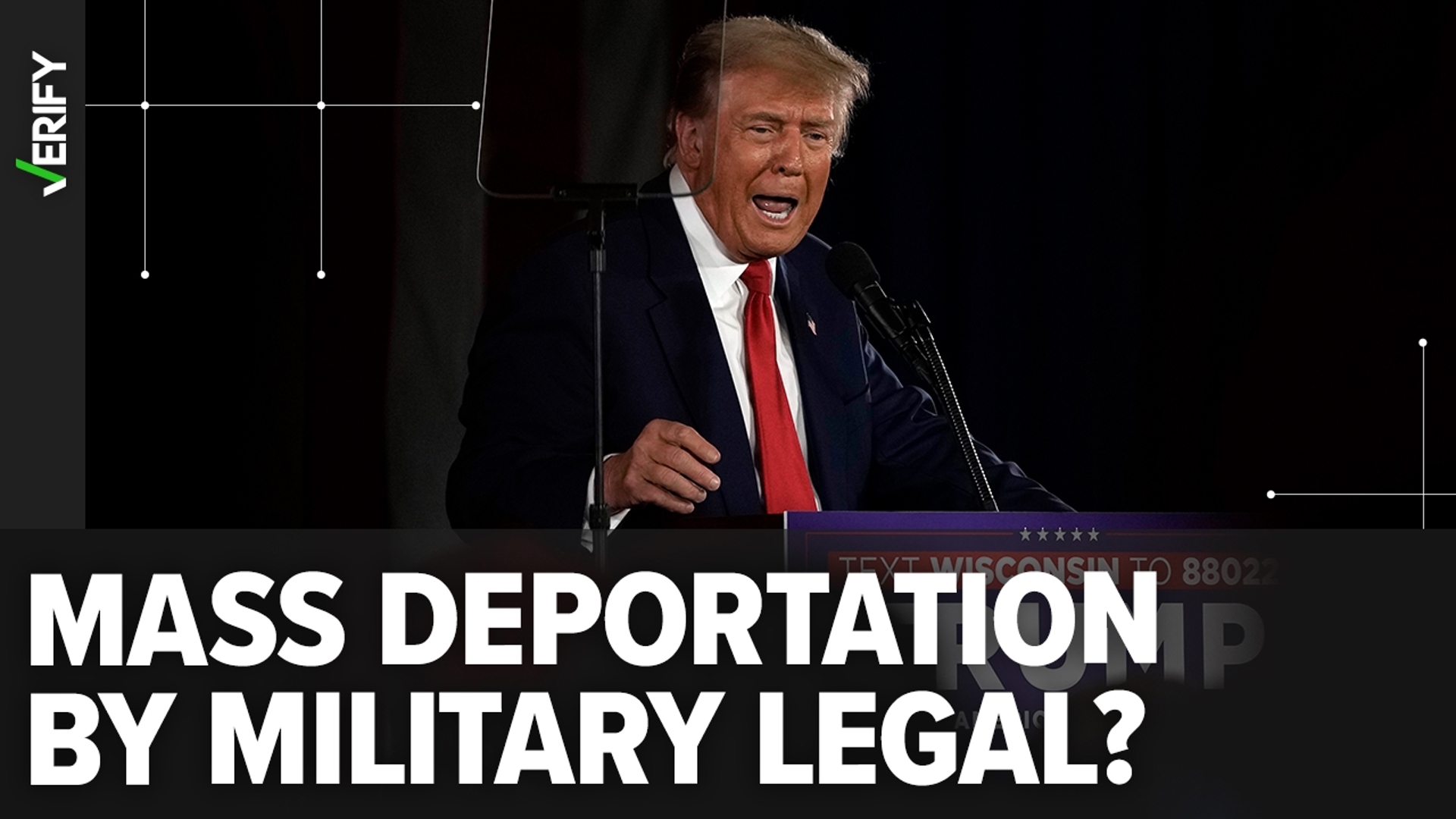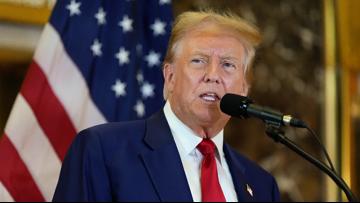During his first presidency and in his campaign leading up to the 2024 election, Donald Trump repeatedly pledged to crack down on illegal immigration. As president-elect, Trump posted on Truth Social on Nov. 18 confirming his plans to declare a national emergency and use the U.S. military for mass deportations of undocumented immigrants.
Trump commented “TRUE!!!” with a repost of a Truth Social post from Tom Fitton, who runs the conservative group Judicial Watch. Fitton’s post reads, “GOOD NEWS: Reports are incoming @RealDonaldTrump administration prepared to declare a national emergency and will use military assets to reverse the Biden invasion through a mass deportation program.”
Several VERIFY readers, including Debbie, Jacq and Matty, asked us whether Trump can use the military to carry out mass deportations.
THE QUESTION
Can the president use the military to carry out mass deportations?
THE SOURCES
- David Bier, director of immigration studies at the Cato Institute
- Peter Margulies, law professor at Roger Williams University
- Elizabeth Goitein, senior director of the Brennan Center for Justice’s Liberty & National Security Program
- Brennan Center for Justice
- President Joe Biden’s Executive Order #14097
- Department of Homeland Security
- The Posse Comitatus Act
- U.S. Section 502(f)
- National Defense Authorization Act of 2016
- Lawfare, a nonprofit organization
THE ANSWER
Yes, it's legal for the president to use the military to help carry out mass deportations and other immigration enforcement actions. The National Guard, with approval from a state's governor, can detain individuals, but the other branches of the military can offer mostly logistical support.
WHAT WE FOUND
A president has the executive power to deploy the military to assist with immigration enforcement, but there are legal limits on the role the military can play.
The Posse Comitatus Act, a 143-year-old law, prohibits the president from using active-duty, full-time service members, such as soldiers or Marines, as a police force, according to the Brennan Center for Justice. That means federal military branches like the U.S. Army or Air Force can’t perform tasks such as detaining individuals or making arrests on U.S. soil, even under a national emergency declaration.
David Bier, director of immigration studies at the Cato Institute, explained that active-duty service members, barred from acting like police under Posse Comitatus, would likely focus on non-law enforcement tasks. That could include building infrastructure, like temporary detention facilities, transporting detainees and providing armed backup for domestic law enforcement.
The Posse Comitatus Act, however, does not apply to the National Guard, Peter Margulies, a law professor at Roger Williams University, told VERIFY.
“The National Guard is a state militia and can be called out by the president with the cooperation of the state governors, and so you could have the National Guard from, let's say, Texas, be used for apprehension. That would not create Posse Comitatus issues,” Margulies said.
Trump's post on Truth Social mentioned declaring a national emergency, but the president can request National Guard assistance or federal military assistance with or without declaring a national emergency, according to Chris Mirasola, a contributor for non-profit Lawfare.
The Brennan Center for Justice explains that declaring a national emergency grants a president with swift authority during times of crises without waiting for Congressional approval, including diverting federal funds or resources.
Both Bier and Margulies told VERIFY Trump's deportation agenda would likely face significant legal challenges and be subject to congressional oversight. And if he declares a national emergency, Congress has the ability to eventually terminate that declaration , but it would require passing a law with a veto-proof supermajority, “which is increasingly difficult in our polarized political environment,” Goitein told VERIFY.
Military involvement in immigration enforcement is not unprecedented. In 2019, then-President Trump declared a national emergency to redirect military funds to construct the U.S.-Mexico border wall. More recently, President Joe Biden used a national emergency declaration to deploy the National Guard to the southern border to assist with processing and facility operations tied to drug enforcement.
According to Google Trends data, online searches about mass deportation have spiked, with some appearing to link the military's involvement to martial law. Martial law involves the suspension of ordinary law and government functions, with military authorities assuming control. Margulies said even if Trump uses the military in his administration’s deportation efforts, it would not equate to declaring martial law.
Margulies explained that martial law hasn’t been used since the Civil War and is “profoundly unlikely” to happen as part of Trump’s proposed initiative because he doesn’t need martial law to execute his deportation plans.
This story is also available in Spanish / Lee este artículo también en español: Lo que verificamos sobre el plan de Trump de usar al ejército para apoyar deportaciones masivas












